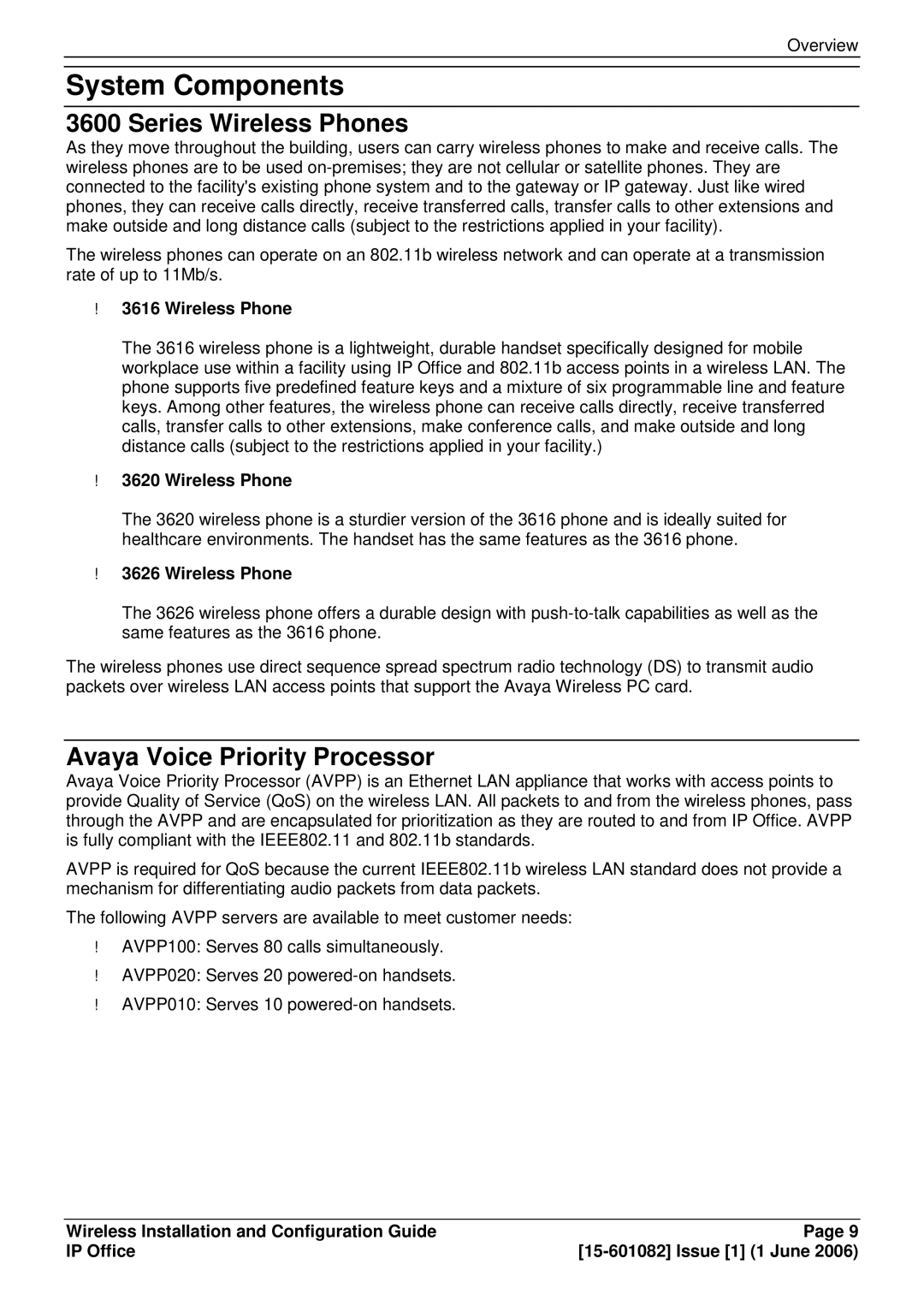
Overview
System Components
3600 Series Wireless Phones
As they move throughout the building, users can carry wireless phones to make and receive calls. The wireless phones are to be used
The wireless phones can operate on an 802.11b wireless network and can operate at a transmission rate of up to 11Mb/s.
3616 Wireless Phone
The 3616 wireless phone is a lightweight, durable handset specifically designed for mobile workplace use within a facility using IP Office and 802.11b access points in a wireless LAN. The phone supports five predefined feature keys and a mixture of six programmable line and feature keys. Among other features, the wireless phone can receive calls directly, receive transferred calls, transfer calls to other extensions, make conference calls, and make outside and long distance calls (subject to the restrictions applied in your facility.)
3620 Wireless Phone
The 3620 wireless phone is a sturdier version of the 3616 phone and is ideally suited for healthcare environments. The handset has the same features as the 3616 phone.
3626 Wireless Phone
The 3626 wireless phone offers a durable design with
The wireless phones use direct sequence spread spectrum radio technology (DS) to transmit audio packets over wireless LAN access points that support the Avaya Wireless PC card.
Avaya Voice Priority Processor
Avaya Voice Priority Processor (AVPP) is an Ethernet LAN appliance that works with access points to provide Quality of Service (QoS) on the wireless LAN. All packets to and from the wireless phones, pass through the AVPP and are encapsulated for prioritization as they are routed to and from IP Office. AVPP is fully compliant with the IEEE802.11 and 802.11b standards.
AVPP is required for QoS because the current IEEE802.11b wireless LAN standard does not provide a mechanism for differentiating audio packets from data packets.
Thefollowing AVPP servers are available to meet customer needs:
Wireless Installation and Configuration Guide | Page 9 |
IP Office |
